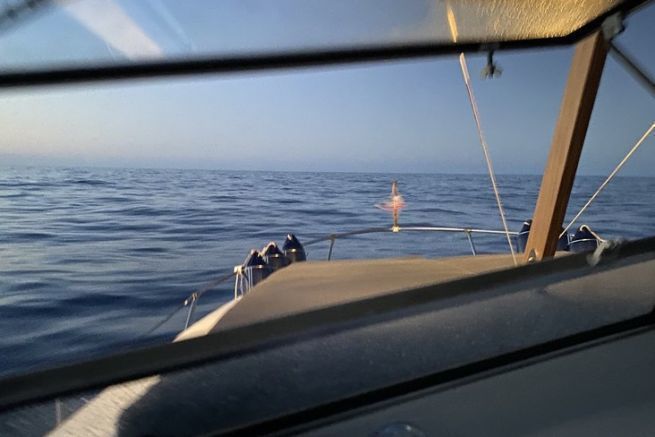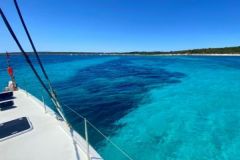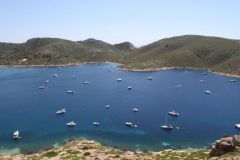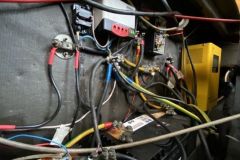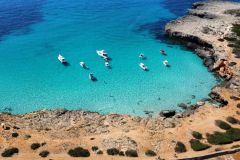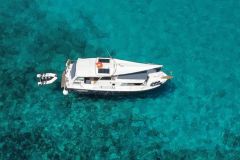"A boat is meant for sailing. Why not take a trip to the Balearics this summer?" My Amerglass boat nicely refurbished over the winter looks ready to take on the sea. This less than 200-mile crossing doesn't impress me. I've done it several times before, except that I was sailing. This time, there is no mast, just two engines to take me to the islands. How will it work?
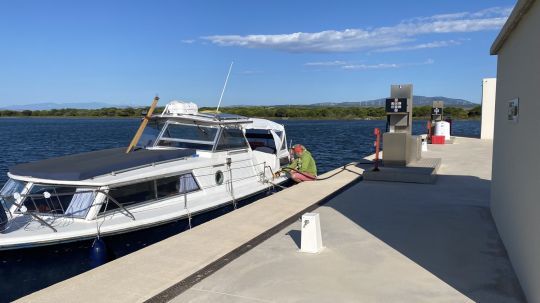
Going to sea has never scared me. Not that I'm unaware of it, but simply that I feel good at sea, happy to be at sea. But, today, my experience of the open sea in a motorboat is limited to a minimum. So I throw myself into the unknown. What will I feel? How to apprehend the events that will inevitably occur?
A gust of wind to welcome us to the Mediterranean
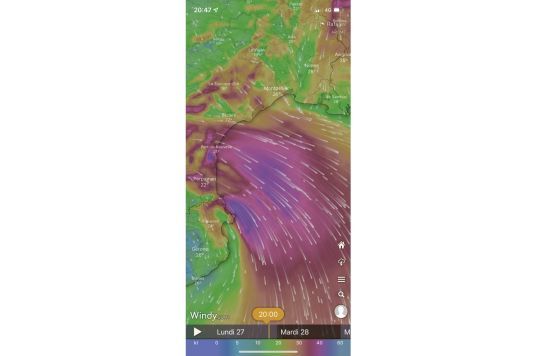
The beginning of this trip started badly. Indeed, coming from Toulouse by the Canal du Midi, we point the bow in the Mediterranean Sea at Port-La-Nouvelle. A short hop of less than 10 miles allows us to take a place at the pontoon of Port Leucate. We made this choice, because the weather forecast announced a strong gale. The Tramontane is blowing directly on us. We all take shelter, the weather files announce 30 knots established!
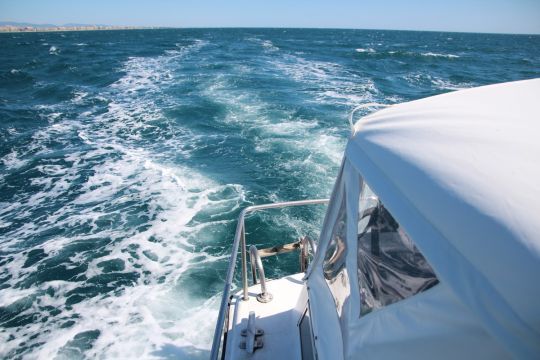
The first lesson of this navigation will be to study a precise weather forecast. Indeed, I don't know how the boat will behave, if she finds herself in this very cold weather that will blow for 2 days. But more than the wind, it is above all the sea state that is important. Indeed, I would learn the hard way that a speedboat remains a rolling boat. "Good walker, good roller", as we are used to say about some sailing boats.
Choose the right weather window
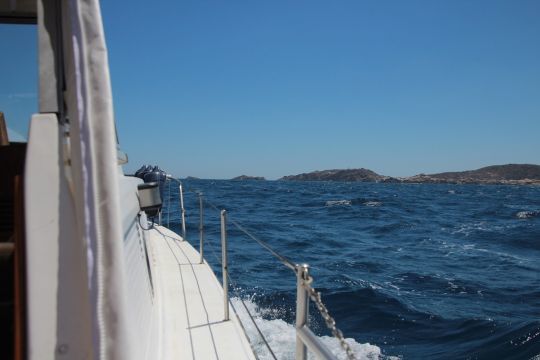
After 2 days of waiting, we leave Port Leucate with a Tramontane tail pushing us up the ass. The sea shows between 0.5 and 1 m of waves. Just enough to surf, which the autopilot had trouble containing, making big swerves of more than 20° from one side to the other. Finally, this phase was quite comfortable, more so than the rest.
As we passed Cape Creus, on the border between France and Spain, the wind rotated 180°, as predicted. We now have a headwind. And the spray from the bow is now crashing on the windshield. It's time to test the windshield wipers. But as expected, this wind will soon die down, leaving unfortunately a rather messy sea that will follow us all night long.
We take turns in the day before
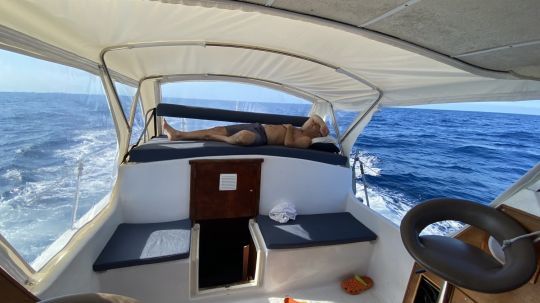
on board, time is going slowly. There are two of us and we let the automatic pilot, a Garmin Reactor 40, manage the helm, with the course locked on Minorca. Fortunately, it is there. Without it, the hours at the helm would have been really long. We always keep an eye on the road, to avoid net buoys or other floating objects like boats. On the safety side, we sail with an AIS, always a Garmin model, which indicates our position and shows the targets of the other boats that are equipped with this system, the targets are displayed on the plotter. This will be really reassuring for the night, even if we are aware that not all boats have this transmitter. During the night, we will take turns to watch every 2 hours.
Dolphins and whales!
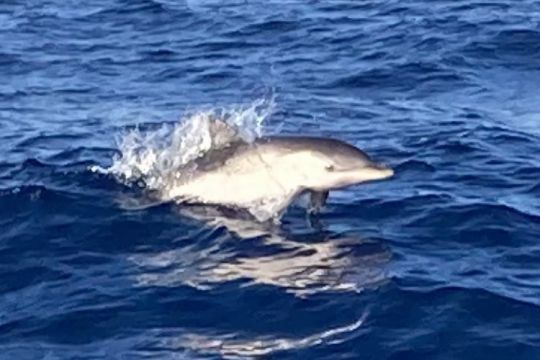
The sea has some nice surprises in store for us. It will be the dolphins that will come in gang to play with the bow, exchanging with us, with their mouth drawn in the shape of a smile. But we will also come across a sperm whale, which was sleeping on the surface and did not wake up when we made a loop around it. Was he pretending to sleep? Finally came the time of the sunset, splendid of redness.
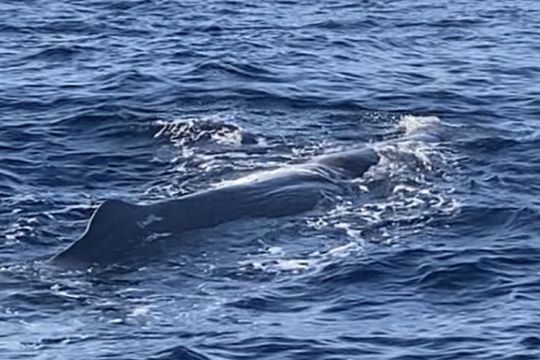
Night of a deep black
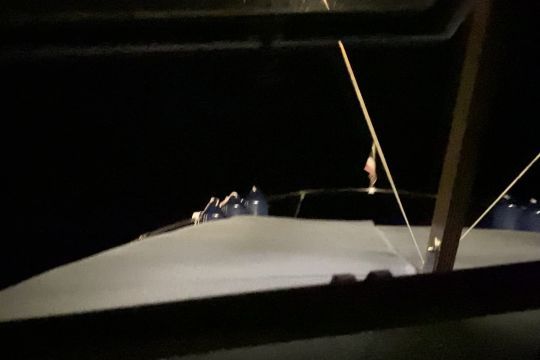
However, once the sun went down, we found ourselves in a dark night, very dark. No moon, just a starry sky, so much so that we could not distinguish the horizon, the limit between the sky and the earth. It is convenient to look at the stars, but less reassuring for navigation. We were moving forward in the dark, really blind. A strange feeling when you are far from any land.
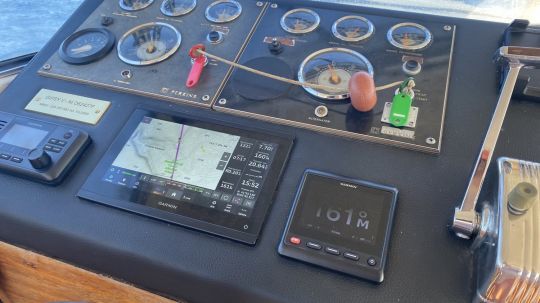
Leaving Leucate at 9am, we arrived in Menorca, north of Mahon at 10am, after a 25 hour crossing. The Amerglass is equipped with 2 Perkins inboard engines of 80 hp. This low engine power does not allow for high top speeds, but it does ensure low fuel consumption. Indeed, at 1300 rpm, the 2 inboard engines propel us at 7.5 knots. After 25 hours at sea, we consumed 180 l of diesel, i.e. 7.4 l/h.
My teachings
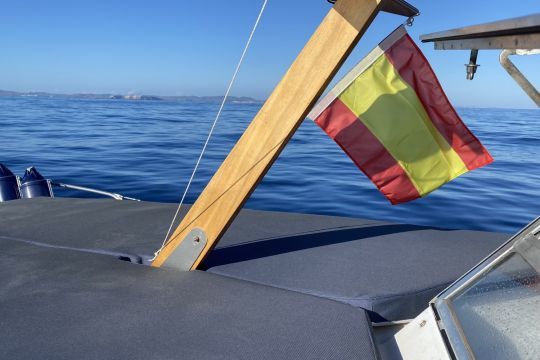
- No problem to sail at night, but preferably far from the coast. Indeed, traps and other fishermen's nets close to the shore are traps for the propellers. During the day, it is possible to see them in time and to avoid them. Mission impossible at night.
- Having an accurate weather forecast is essential. And if the wind is important, the sea state is much more important. Indeed, sailing in a washing machine drum all day long becomes tiring. Long live the calm sea.
- A boat in good condition and well serviced avoids surprises. We were able to leave the engines running for 25 hours without putting our nose in the hold. A first on this boat dating from 1973 and a certain pride for the captain-mechanic that I am.
- And of course, to secure everything that can fall, roll or escape before setting sail. The glasses for example, essential elements of the aperitif, needed to be chocked so as not to end up in a thousand pieces.
